9. Summary of results#
The following curves represent the various comparisons between Code_Aster and Xloi (program for calculating the law of behavior, not finite elements, on a hardware point). The Hujeux law implemented there is identical to that found in GEFDYN), in terms of deviatory stress (Figure), total volume deformation (Figure) and deviatory (Figure) and isotropic (Figure) and isotropic (Figure) work hardening coefficients.
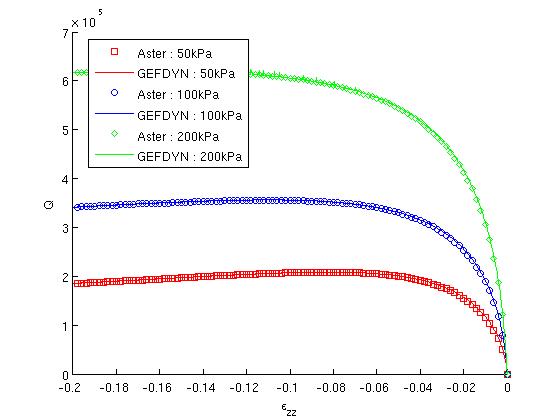
Figure 1 : Equivalent stress (noted « \(Q\) « ) as a function of axial deformation: comparison between Code_Aster and Xloi solutions, for the consolidation pressures of \(50\) , , , ,, :math:`100` , and \(\mathrm{200kPa}\) .
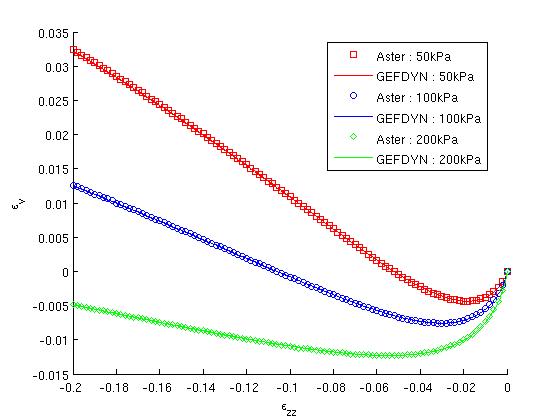
Figure 2 : Total volume deformation (noted « \(\mathit{EPSv}\) « ) as a function of axial deformation: comparison between the Code_Aster and Xloi solutions, for the consolidation pressures of \(50\) , , ,, :math:`100`, and Xloi solutions, for the consolidation pressures of * , ,, ,, ,, ,, ,, ,, ,, ,, ,, ,, ,, ,, ,, :math:`mathrm{200kPa}` .
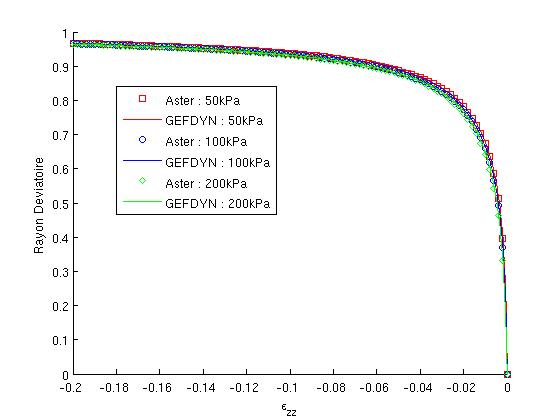
Figure 3 : Deviatory radius as a function of axial deformation: comparison between Code_Aster and Xloi solutions, for the consolidation pressures of \(50\) , \(100\) , and \(\mathrm{200kPa}\) .
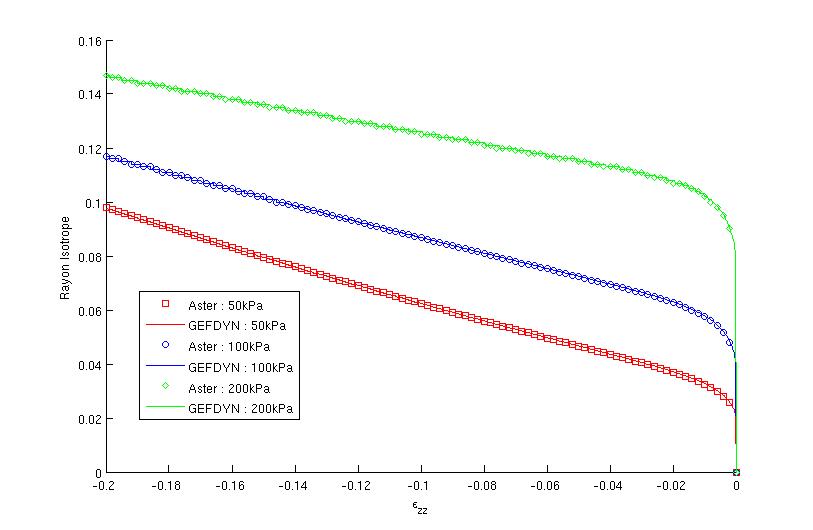
Figure 4 : isotropic radius as a function of axial deformation: comparison between Code_Aster and Xloi solutions, for the consolidation pressures of \(50\) , \(100\) , and \(\mathrm{200kPa}\) .
The following curves represent the comparisons between the results with modeling small deformations and large deformations in Code_Aster. Figure shows the evolution of deviatory stresses and a comparison of volume deformations is shown in Figure.
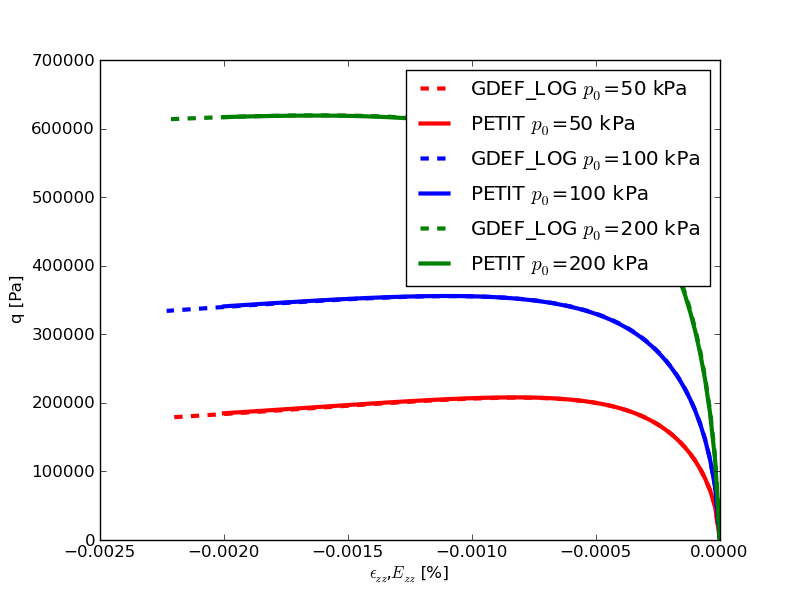
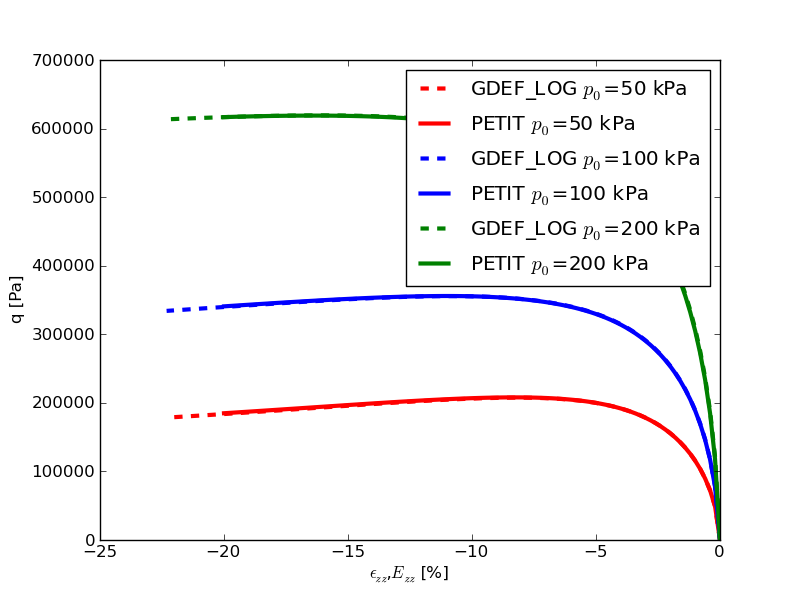
Figure 5 : Equivalent stress (noted « \(Q\) « ) as a function of axial deformation: comparison between solutions with small and large deformations in Code_Aster, for the consolidation pressures of \(50\) , , ,, :math:`100`, and \(\mathrm{200kPa}\) .
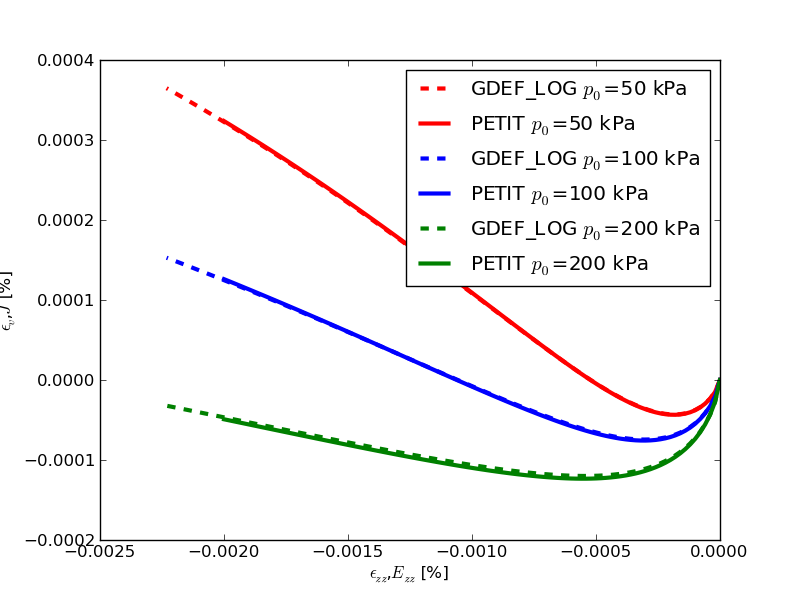
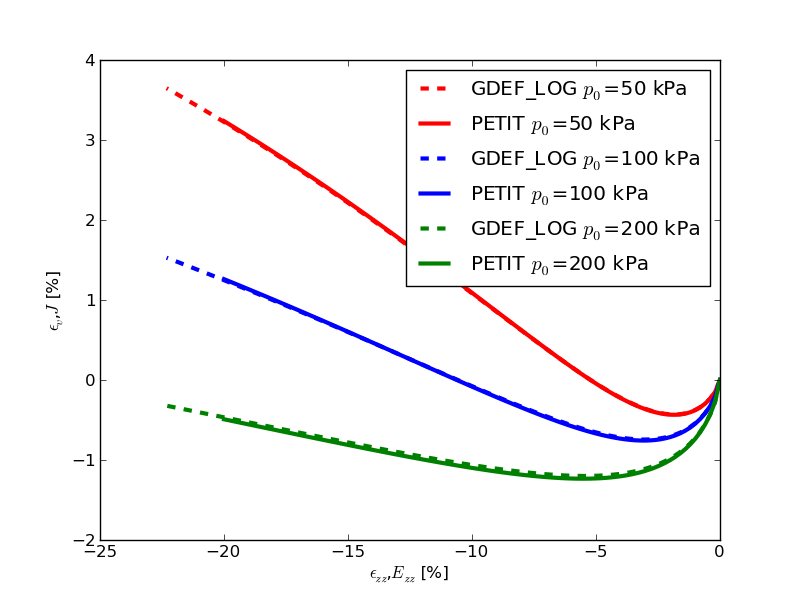
Figure 6 : Total volume deformation as a function of axial deformation: comparison between solutions with small and large deformations in Code_Aster, for the consolidation pressures of \(50\) , \(100\) , , and \(\mathrm{200kPa}\) .